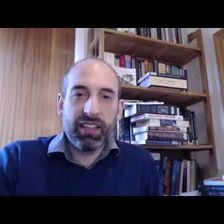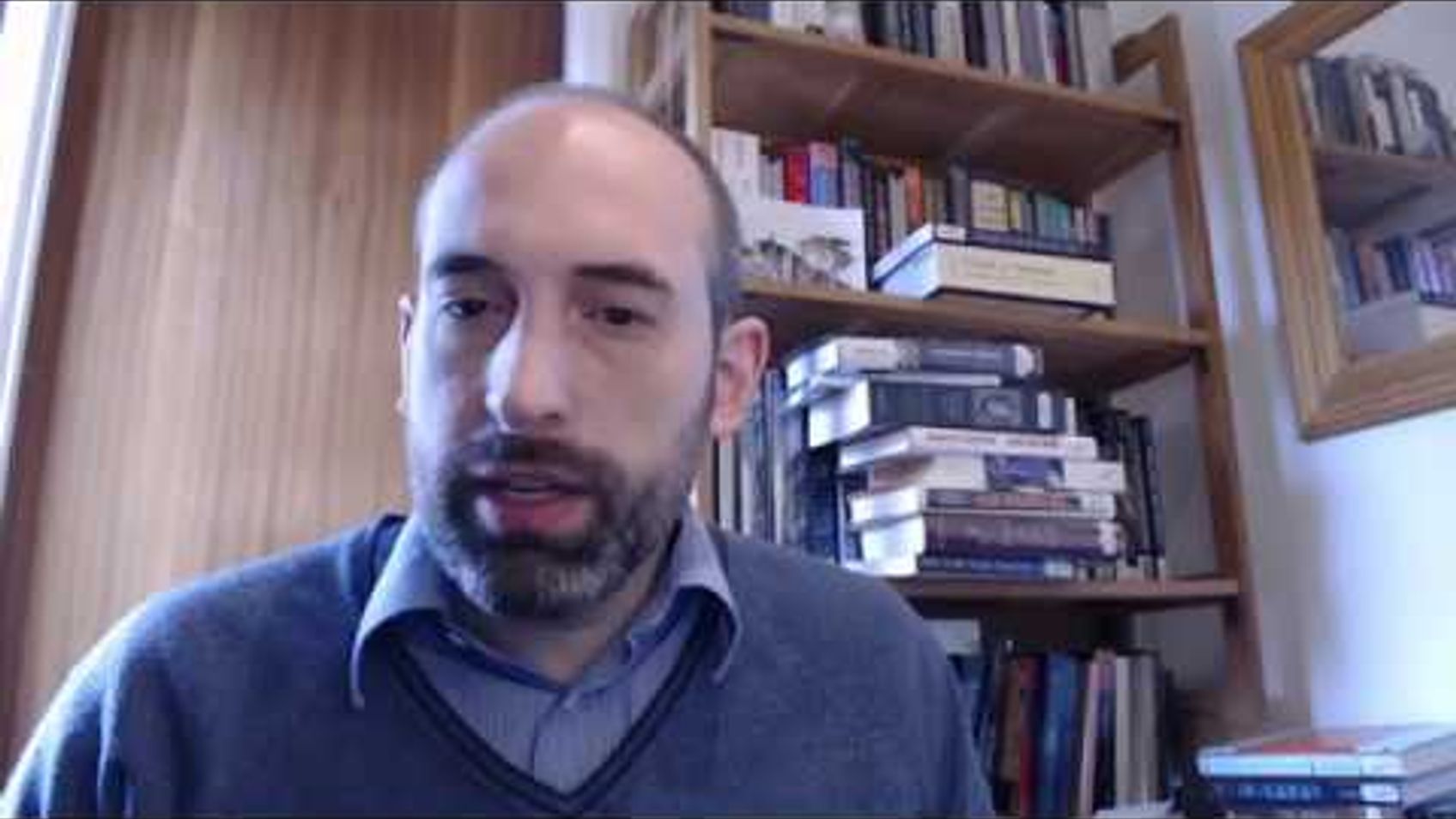Q&A#90 Legal and Natural Consequences of Sin
November 5, 2018

Alastair Roberts
Today's question: "What is your understanding of the legal and natural consequences of sin? Should we separate the two? Is there any difference between God’s judgement/wrath and the natural consequence of being handed over to sin/the powers?"
If you have any questions, you can leave them on my Curious Cat account: https://curiouscat.me/zugzwanged.
If you have enjoyed these talks, please tell your friends and consider supporting me on Patreon: https://www.patreon.com/zugzwanged.
The audio of all of my videos is available on my Soundcloud account: https://soundcloud.com/alastairadversaria. You can also listen to the audio of these episodes on iTunes: https://itunes.apple.com/gb/podcast/alastairs-adversaria/id1416351035?mt=2.
More From Alastair Roberts

Q&A#91 The Trinity in the OT, the Faith of OT Believers, the Angel of the Lord
Alastair Roberts
November 6, 2018
Today's question:
"A number of years ago there was a lot of debate in certain circles in the UK revolving around these topics: the degree to which Chr

Q&A#92 Responding to Criticisms of Echoes of Exodus
Alastair Roberts
December 5, 2018
Today's question: "Could you respond to some of the criticisms raised by this review of Echoes of Exodus? http://themelios.thegospelcoalition.org/revi

Q&A#93 Theological Training
Alastair Roberts
December 6, 2018
Today's question: "After your thread on Twitter RE: theological training, and given that you're currently back in the UK, could you share with us what

Q&A#89 Man, Woman, Deception and Authority in 1 Timothy 2
Alastair Roberts
November 4, 2018
Today's question: "How do we explain 1 Timothy 2:14? On the one hand it appears to have a novel idea that Adam was not deceived in the fall. While on

Q&A#88 Call No Man Father, Castor and Pollux, and Contraception
Alastair Roberts
November 3, 2018
Today's questions:
"1.) How can Paul call Timothy his "true child in the Faith" (1 Tim 1:2; cf. 1 Cor 4:17, 2 Tim 1:2) when Jesus forbids calling anyo

Q&A#87 The Church and the Natural Family
Alastair Roberts
November 2, 2018
Today's question:
"In the past two episodes of "Mere Fidelity" there was an underlying issue which was touched on, but not fully discussed. That is th
More on OpenTheo

Can You Recommend Good Books with More In-Depth Information and Ideas?
#STRask
January 22, 2026
Questions about good books on Christian apologetics, philosophy, and theology with more in-depth information and ideas, and resources to help an intel

How Can We Know Who Is Teaching the Same Gospel Paul Taught?
#STRask
February 16, 2026
Questions about how we can know who is teaching the same gospel Paul taught, and whether or not Jeremiah 1:5 supports the idea that we pre-existed in

Can You Provide Verifiable, Non-Religious Evidence That a Supernatural Jesus Existed?
#STRask
November 10, 2025
Question about providing verifiable, non-religious evidence that a supernatural Jesus existed.
* I am an atheist and militantly anti-god-belief. Ho

Can Two Logical People Come to Conflicting Conclusions Without Committing a Fallacy?
#STRask
January 8, 2026
Questions about whether two logical people can come to conflicting conclusions on a topic without committing a fallacy, how Greg, as a public figure,

How Can I Explain Modesty to My Daughter?
#STRask
November 27, 2025
Questions about how to explain modesty to a nine-year-old in a way that won’t cause shame about her body, and when and how to tell a child about a pre

What Do You Think About Churches Advertising on Social Media?
#STRask
January 19, 2026
Questions about whether there’s an issue with churches advertising on social media, whether it’s weird if we pray along with a YouTuber, and whether C

Is It a Sin to Feel Let Down by God?
#STRask
November 6, 2025
Questions about whether it’s a sin to feel let down by God and whether it would be easier to have a personal relationship with a rock than with a God

An Invitation to the 2026 Coram Deo Pastors Conference
Life and Books and Everything
February 18, 2026
"I love being a pastor, and I love pastors, which is why I hope you will consider joining us at the Coram Deo Pastors Conference in 2026." —Kevin DeYo

Why Is It Necessary to Believe Jesus Is God?
#STRask
February 19, 2026
Questions about why it’s necessary to believe Jesus is God, whether belief in the Trinity is required for salvation, and why one has to believe in the

Shouldn’t I Be Praying for My Soul Rather Than for Material Things?
#STRask
February 2, 2026
Questions about whether we should be praying for our souls rather than for material things, why we need to pray about decisions, whether the devil can

Why Should We Pray If God Already Knows What’s Going to Happen?
#STRask
January 29, 2026
Questions about why we should pray if God already knows what’s going to happen, how the effectiveness of prayer is measured, and whether or not things

Why Do We Say Someone Was Saved on a Particular Date If It Was Part of an Eternal Plan?
#STRask
November 24, 2025
Questions about why we say someone was saved on a particular date if it was part of an eternal plan, the Roman Catholic view of the gospel vs. the Bib

Lora Ries: Border Security and Immigration Policy
Knight & Rose Show
December 7, 2025
Wintery Knight and Desert Rose welcome Lora Ries to discuss border security and immigration policy. They explore Biden's policy changes, like ending R

Does God Really Need a “Pound of Flesh” to Forgive Sins?
#STRask
January 12, 2026
Questions about how to answer the challenge that God doesn’t need a “pound of flesh” to forgive sins but can simply forgive, and whether the claim in

The Making of the American Mind with Matthew Spalding
Life and Books and Everything
February 2, 2026
The United States is unique in how much attention it pays to its founding, its founders, and its founding documents. Arguably, the most famous and mos
